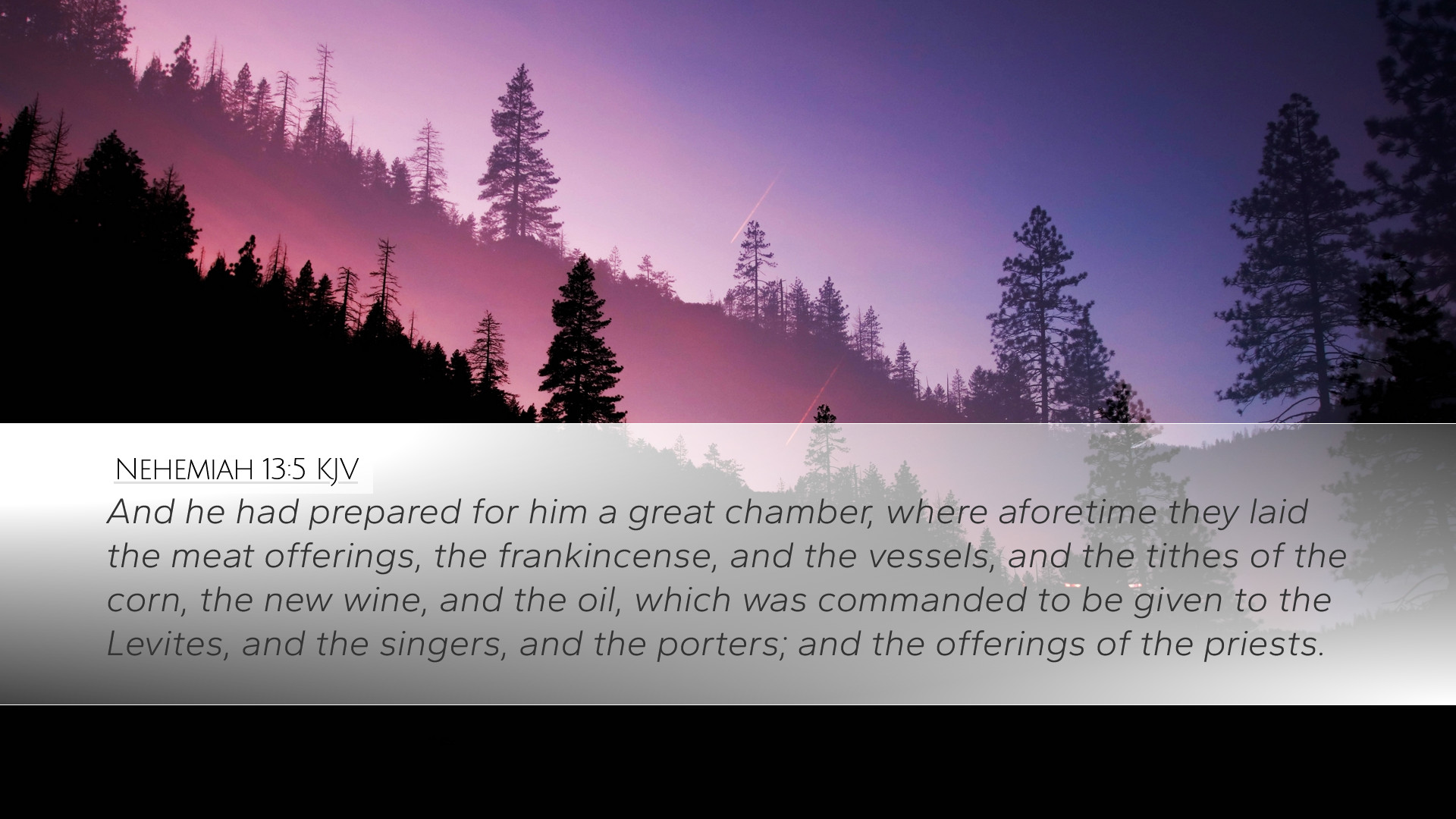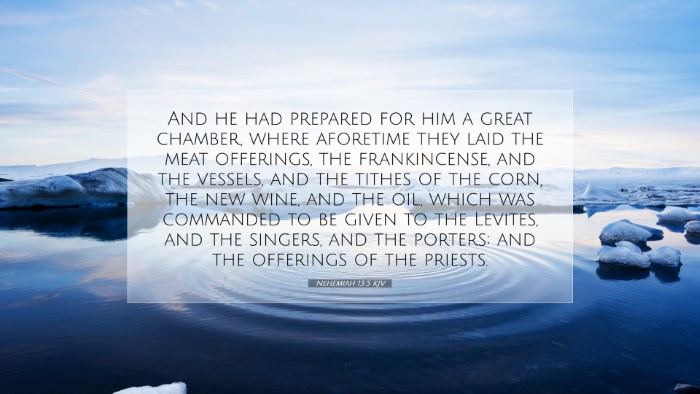Commentary on Nehemiah 13:5
Verse Reference: Nehemiah 13:5
Text: "And he had prepared for him a great chamber, where aforetime they laid the meat offerings, the frankincense, and the vessels, and the tithes of the corn, the new wine, and the oil, which was commanded to be given to the Levites, and the singers, and the porters; and the offerings of the priests." (Nehemiah 13:5)
Contextual Overview
The book of Nehemiah documents the pivotal moments in the rebuilding of Jerusalem’s walls and the reestablishment of the community’s worship and practice. Nehemiah 13 deals with the reforms Nehemiah undertook after he returned to the city. This verse particularly highlights the negligence regarding the provisions for the priests and Levites, emphasizing the importance of maintaining proper worship and distributive justice among the community.
Insights from Matthew Henry
Matthew Henry elaborates on the significance of this verse in emphasizing the systematic provision for the ministry of the church. He notes how the neglect of offerings and tithes led to a dangerous decline in spiritual life and worship among the people. Henry emphasizes that the provisions made “in a great chamber” symbolize a place set aside for holiness and service to God. He raises a crucial point that maintaining these arrangements reflects the people's commitment to worship and the psychological impact on the religious leaders.
Insights from Albert Barnes
Albert Barnes provides an interpretation focusing on the consequences of neglecting the Levites and priests. He argues that the great chamber was not simply a storeroom but a significant aspect of the temple's worship infrastructure. Barnes emphasizes the necessity of maintaining a well-organized system for offerings which is vital for the spiritual health of the community. He states that when the roles of the Levites are not honored, both their ministry and the understanding of the congregation toward God's provisions falter. This leads to a decline in accountability and faithfulness in worship practices.
Insights from Adam Clarke
Adam Clarke’s commentary on this verse provides valuable insights into the historical and theological implications. He details the specific items mentioned: the meat offerings, frankincense, tithes, and their historical practices in Israel’s worship. Clarke highlights that the neglect of these offerings was not merely a lapse in duty but indicated a deeper spiritual apathy amongst the people. He stresses the necessity for a communal awareness and personal responsibility to ensure divine worship is upheld, tying it into the broader theme of holiness and community integrity.
Theological Implications
The central theme emerges—God desires His people to maintain a healthy and structured relationship with Him through worship. The neglect of offerings not only threatens the spiritual leaders but also impacts the entire community's spiritual ecosystem. Each commentator submits that maintaining the provisions for worship is a reflection of the people's respect and commitment to God’s covenant.
Practical Applications
- Support for Church Leaders: Churches today must recognize the importance of supporting their leaders through adequate financial and spiritual provision, ensuring they can fulfill their calling effectively.
- Community Responsibility: Every member of the congregation should acknowledge personal responsibility in contributing to the spiritual life of the church. This accountability cultivates a thriving worship environment.
- Holistic Worship Practices: Just as the Israelites had specific offerings and practices, modern worship also requires structure and intentionality in how offerings are made and distributed in the Christian community.
Conclusion
Nehemiah 13:5 serves as a poignant reminder of the necessity for order and commitment in worship practices. Both the individual and communal aspects of worship require diligence, respect, and action to cultivate a faithful relationship with God. As researchers and scholars engage with this text, the historical context and the voices of the past can offer direction for future practices, ensuring that the church remains a vibrant representation of God's covenant community.


